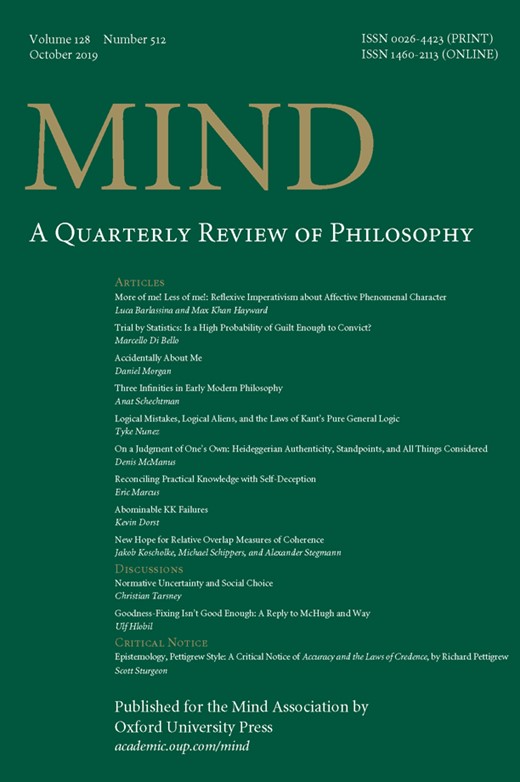-
Views
-
Cite
Cite
Jonathan Birch, Agents and Goals in Evolution, by Samir Okasha, Mind, Volume 128, Issue 512, October 2019, Pages 1408–1416, https://doi.org/10.1093/mind/fzy085
Close - Share Icon Share
Extract
Sometimes, watching ants, it’s hard not to feel a sense of pathos. There is a species in Brazil, Forelius pusillus, that takes the defence of its nest unusually seriously. To conceal and protect the nest at the end of each day, some of the workers seal off the entrance—from the outside. Left out in the cold night-time temperatures, these ants will never see the morning. But their sacrifice increases the chance that their sisters will.
Faced with an example like this (from Tofilski et al. 2008), we feel an irresistible temptation to describe the situation in agential terms. We impute goals, strategies, reasons and interests to the ants. We say that they seal off the nest in order to protect their relatives. We say that they sacrifice their own survival for the sake of others. Some of the things we are inclined to say may well be anthropomorphic and unjustified by the biological facts. The ants don’t wipe away a tear as they leave the nest; they don't wistfully remember the good times. Yet it is far from clear that scientists are wrong to invoke agential concepts like goals, strategies, reasons and interests in serious explanations of the ants’ behaviour. After all, these ants really are akin to agents in certain important respects. Their behaviours really are in some sense strategic, flexible, goal-directed, and attuned in agent-like ways to the facts of their situation. There is no obvious way to mark the point at which soppy anthropomorphism stops and accurate description begins.



